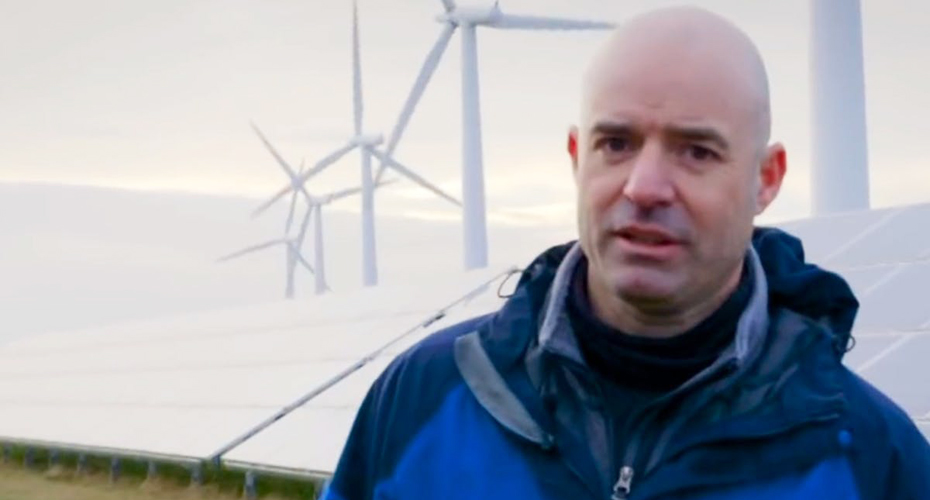Masters applications for 2023 entry are now closed.
Applications for September 2024 will open on Monday 25 September. Applications are now open for programmes with a January 2024 start. View our programmes »
| UCAS code |
1234 |
| Duration |
1 year full time
2 years part time |
| Entry year |
2025 |
| Campus |
Streatham Campus
|
| Discipline |
Geography
|
| Contact |
|
Overview
- If you are passionate about creating a more sustainable world, join us on your journey by addressing global sustainability challenges and exploring solutions to these in a wide variety of environments and contexts.
- You will learn together with students from different disciplines and backgrounds to apply your different perspectives, insights and passions to begin to understand and address the very real challenges facing our planet.
- Explore how systems thinking can be applied to a range of social, economic and environmental issues and begin to understand the interconnections and behaviours of different systems.
- This is a dynamic and exciting programme where your coursework assessments will not be limited to essays, you will also be creating films, press briefings, presentations, reports, and policy briefs whilst learning to communicate to a wide range of audiences and enhancing your employability.
- We offer immersive learning experiences which provide an opportunity for interactive learning of fundamental skills and approaches to understanding and solving challenges.
- You have the opportunity to undertake a work placement as part of a module, and a research project within an organisation as an alternative to a traditional academic dissertation.
- Your learning is underpinned by the latest research undertaken by world-leading scholars and the Global Systems Institute community.
- Upon graduation, you will have the skills to become an agent of change for a sustainable future in whichever career path you choose.
1st in the UK for Climate Action
Outstanding Contribution to Environmental Leadership prize
Top 15 for Geography and Environmental Science
Top 40 in the world for Geography
1st in the UK for Climate Action
Outstanding Contribution to Environmental Leadership prize
Top 15 for Geography and Environmental Science
Top 40 in the world for Geography
Entry requirements
All applicants are considered individually on merit although we usually require a 2:1 honours degree.
No specific subjects are required.
The programme has been designed to allow students from a wide range of backgrounds to immerse themselves in a transformative educational experience. No science, mathematics, or engineering prerequisites are required.
Please also see our guidance on essential documentation required for an initial decision on taught programme applications.
Entry requirements for international students
English language requirements
International students need to show they have the required level of English language to study this course. The required test scores for this course fall under Profile B2. Please visit our English language requirements page to view the required test scores and equivalencies from your country.
The knowledge that I have gained from the MSc Global Sustainability Solutions has been invaluable to inform the research that I now do into climate science and policy research in my role as Sustainability Analyst at ITV.
In terms of course content, I really enjoyed learning about the policy landscape within the Innovation and the Science-Policy Interface module, particularly the group work aspect of creating a report on a new policy proposal. But candidly, one of the most enjoyable parts of the course was meeting the variety of people that shared the same passion for climate change solutions as I did.
Read more from Tom
Tom
MSc Global Sustainability Solutions graduate
I’ve really enjoyed meeting new people from all over the world and being able to come together to brainstorm and learn about subjects that we’re all really motivated about. I’ve also enjoyed working on real-world challenges as well as having a dissertation project that has the potential to encourage positive change.
I’m a mature student who, after completing my first degree 11 years ago, decided to return to part-time study with the aim of learning about and helping to create solutions for some of today’s most urgent sustainability challenges. I chose to study at the University of Exeter for its track record of excellence in research.
The programme has been interdisciplinary in nature and has covered a wide range of subjects.
Read more from Charlie
Charlie
MSc Global Sustainability Solutions
Course content
Our impacts on the Earth system are at such a scale that we have become a geological force. If we are to not just survive but to flourish, we urgently need to create robust and practical solutions to a set of interacting and complex global challenges.
These challenges span countries, regions, and academic disciplines. For example: the challenge to establish food, water, and energy security for a global population increasing towards nine billion by the middle of this century; the urgent need to halt the rapid decline in biodiversity; or the required decrease of greenhouse gas emissions in order to avoid dangerous climate change. While diverse, the common thread that links these and other challenges is that these are all ultimately a challenge of systems.
The programme addresses global sustainability challenges, equipping you to apply systems thinking to solve complex problems in a wide variety of environments and contexts and develop a deeper understanding of the interface between science, policy and practice. Additionally, you can tailor the programme to meet your areas of interest and passion by choosing 30 credits of optional modules.
You can choose to focus your dissertation (Solutions Project) on a piece of original academic research or take the opportunity to apply your learning to a real-world sustainability problem in an internship with an external organisation. To assist you we advertise projects connected with our external partners or internal research projects, and you can also choose to follow your own passions or ideas and reach out to potential companies or academics. We provide support and resources to help whichever path you choose.
Every year we have part-time students studying this programme who are an important part of our community. For part-time study we recommend that you complete 75 credits in year one, and 105 credits in year two (of which 60 credits is your dissertation). This means you will be taking approximately two core 15-credit modules per term and one optional 15-credit module, but there is flexibility if needed.
A key element of the programme is the application of academic learning to real-world sustainability challenges. This is achieved through a variety of diverse assessments, as well as with internship and placement opportunities with a wide range of local, national and international organisations and companies.
MSc Global Sustainability Solutions (GSS) has been designed to allow students from a broad range of backgrounds to immerse themselves in a transformative educational experience. No science, mathematics, or engineering prerequisites are required. Upon graduation, you will have the skills to become an agent of change for a sustainable future and you will join our fantastic alumni network.
The modules we outline here provide examples of what you can expect to learn on this degree course based on recent academic teaching. The precise modules available to you in future years may vary depending on staff availability and research interests, new topics of study, timetabling and student demand.
A wide range of optional modules are possible. The list below is offered for initial consideration.
Compulsory modules
150 credits of compulsory modules including a choice of either a 60 credit academic dissertation or 60 credit internship, 30 credits of optional modules.
a You must choose either GEOM146 or GEOM147 (you cannot choose both modules).
| Code | Module |
Credits |
|---|
| GEOM146 |
Solutions Project (Academic) [See note a above] | 60 |
| GEOM147 |
Solutions Project (Internship) [See note a above] | 60 |
| GEOM149 |
Green Planet | 15 |
| GEOM141 |
Global Challenges | 15 |
| GEOM143 |
Global Systems Thinking | 15 |
| GEOM144 |
Innovation and the Science-Policy Interface | 15 |
| GEOM145 |
Theory for Sustainable Transitions | 15 |
| MTHM054 |
Climate Change Science and Solutions | 15 |
Optional modules
| Code | Module |
Credits |
|---|
|
MSc GSS optional modules 25/26 |
| BEMM375 |
Sustainable Tourism Management |
15 |
| BIOM568 |
Blue Planet |
15 |
| GEOM184 |
Open Source GIS |
15 |
| GEOM433 |
Sustainability in Practice (Work Placement) |
15 |
| POLM016 |
Food Systems, Alternative Food Networks and Ethical Consumption |
15 |
| GEOM181 |
Coding for Spatial Analysis |
15 |
| BEE3076 |
Environmental Economics and Sustainability |
15 |
| EFPM838 |
Transdisciplinary Collaborations for Creative Futures |
15 |
| GEOM312 |
Just Futures |
15 |
Fees
2025/26 entry
UK fees per year:
£14,300 full-time; £7,150 part-time
International fees per year:
£29,800 full-time; £14,900 part-time
Scholarships
The University of Exeter has many different scholarships available to support your education, including £5 million in scholarships for international students applying to study with us in the 2025/26 academic year, such as our Exeter Excellence Scholarships*.
For more information on scholarships and other financial support, please visit our scholarships and bursaries page.
*Terms and conditions apply. See online for details.
I love that the course has an interdisciplinary approach and together across a range of subjects we can work to create sustainability solutions. Each of our lecturers are the best in their field.
I also feel we are getting a wider range of knowledge through the programme's interdisciplinary approach as my knowledge isn’t limited to one field. For example, as well as learning elements from Geography, we also get to choose a range of optional modules in other departments. I am doing a module from the Business School which demonstrates how this programme has a very holistic approach.
I love living in Exeter as the place I come from in India is a green area and Exeter is also green with lots of trees, so it has helped me adapt and I feel happy here. You get the calmness of nature but also the perks of living in a city too.
Read more from Roshny
Roshny
MSc Global Sustainability Solutions
Teaching and research
How will I learn?
- Immersive learning experiences
- Lectures
- Seminars
- Workshops
- Group discussion
- Group work
- Independent study
- Engagement with academic communities
Innovative teaching lies at the heart of the programme. Emphasis will be placed upon applying learning to real-world challenges and enhancing your employability. We will be delivering some of this innovative training using Prosocial as part of empowering you to become agents of change for a sustainability transition.
You will be taught by leading academics at the University of Exeter working in the sustainability sphere. You will be given the training and opportunity to practice how your learning is engaged within wider social, economic, and policy debates.
Organisations such as the Met Office, ARUP, Lloyds and the University of Exeter’s Sustainability Team, will provide real-world challenges and opportunities for you to address as part of the programme. Every year we work with a variety of external partners to offer internship and placement opportunities, and students can create their own real-world opportunities too.
Immersive learning
Immersive learning experiences will provide an opportunity to develop a cohort identity across staff and students, whilst learning fundamental skills and approaches to understanding and solving challenges. This includes group social activities at the start of the programme and a period of shared learning in the middle of Term one to help build community and create a space for personal development.
Research
With a strong research-led approach to the teaching on the GSS programme, we believe every student benefits from being taught by experts in their field. You will discuss and explore the very latest ideas, research and debates with academics directly involved in this research. You will be able to explore the research avenues that are of specific interest to you in your assessments, and develop your own research skills and expertise within your dissertation.
The University has been recognised as being home to more of the world’s most influential climate scientists than any other university by Reuters and in November 2024 we won the Outstanding Contribution to Environmental Leadership prize at the Times Higher Education (THE) awards. We are 6th in the UK for world-leading research in Geography and Environmental Studies Based on 4* research in the Research Excellence Framework 2021. The University is ranked 10th in the World in the influential Times Higher Education Impact Rankings (2024) for our pivotal research, action and progress towards delivering the UN Sustainable Development Goals (SDGs). Exeter has also been placed 24th globally for Environmental Education and 25th for Environmental Research in the latest QS rankings.
Global Systems Institute
MSc Global Sustainability Solutions (GSS) is the flagship MSc programme for the Global Systems Institute which brings together researchers, students, citizens, and partner organisations to solve global challenges, and help create a flourishing future world together, through transformative research and education.
Several GSI researchers have featured in the 2024 Clarivate list of most highly cited researchers in the world.
The Global Systems Institute works with others to secure a flourishing future for humanity as an integral part of a life-sustaining Earth system. It is uniting a trans-disciplinary group of researchers, educators and partners to look beyond single ‘environmental’ issues to a truly systemic view of coupled global changes in the human social and economic sphere and the biosphere. As an MSc student on the GSS you will be part of the GSI community, with the opportunity to attend weekly seminars covering a wealth of topics and the latest research.
Tutorial support
Each student is allocated a personal tutor who is available for advice and support throughout your studies. There is also a pastoral mentor available to help with further guidance and advice.
Assessment
Assessments will focus on the application of your learning and go beyond exams and essays. You will have the opportunity to be assessed via the creation of project reports, policy briefings and white papers, the preparation and delivery of press conferences, online and interactive infographics, short documentary films, reflective pieces and journals.
Read more

Dr James Dyke
Associate Professor in Earth System Science
.jpg)
Sally Rangecroft
Lecturer in Physical Geography

Dr Catherine Butler
Associate Professor in Human Geography

Professor Tim Lenton
Chair in Climate Change and Earth System Science

Dr Femke Nijsse
Lecturer, Global Systems Institute

Professor Peter Cox
Director of Global Systems Institute
Dr James Dyke
Associate Professor in Earth System Science
"This innovative and interdisciplinary Masters programme will provide the skills and experience for you to analyse these complex challenges, critically evaluate proposed solutions, and formulate new solutions that will emerge from intense periods of academic exploration in collaboration with a community of external partners."
Profile page
Dr James Dyke
Associate Professor in Earth System Science
"This innovative and interdisciplinary Masters programme will provide the skills and experience for you to analyse these complex challenges, critically evaluate proposed solutions, and formulate new solutions that will emerge from intense periods of academic exploration in collaboration with a community of external partners."
Profile page
Sally Rangecroft
Lecturer in Physical Geography
As an interdisciplinary academic myself (with a physical geography background), it is exciting to be the programme director for such a truly interdisciplinary and innovative programme. From my own research, I know that to help find solutions to global and local challenges we need to work more holistically as researchers, stakeholders, communities and educators. The GSS MSc enables students to work in this sphere, seeing the connectivity and complexity of real-world sustainability challenges, fostering collaboration, and encouraging the exploration of novel solutions. The course actively brings together students from a diverse range of backgrounds and skills, allowing students to learn from each other as well as world-leading academics and researchers.
Profile page
Dr Catherine Butler
Associate Professor in Human Geography
"My work examines processes of environmental governance focusing on two major substantive themes - energy and low carbon transitions, and flooding and climate change adaptation. I have developed these themes over a number of years through several projects examining the roles of publics, the state, and private institutions in the societal processes which work to embed, sustain, and shift particular ways of living with implications for environmental sustainability."
Profile page
@drcbutler
Professor Tim Lenton
Chair in Climate Change and Earth System Science
"The Global Systems Institute was born out of the recognition that humans are now a global force. We have started the Anthropocene and become collectively aware that we are transforming our planet. Rather than endlessly analysing the problems this creates, we seek to identify transformative solutions to the global challenges faced by humankind."
Profile page
Dr Femke Nijsse
Lecturer, Global Systems Institute
I'm a complexity scientist with experience modelling climate, energy systems and the economy. For my most recent research project, I'm working on innovation in the energy system and the transition towards sustainable energy.
Profile page
Professor Peter Cox
Director of Global Systems Institute
I am a Professor of Climate System Dynamics, having previously worked at the Met Office-Hadley Centre and the UK Centre for Ecology and Hydrology. My current research interests include emergent constraints on earth system sensitivities, theoretical relationships between climate variability and climate sensitivity, vegetation dynamics and demography, and improving the representation of land-surface processes.
Profile page
Careers
Employer-valued skills this course develops
Throughout the course you will gain confidence in systems thinking and complex problem-solving, as well as acquire the sought after, transferable skills needed for a successful career in the field. A key feature of the programme is the diversity of assessment which imitate tasks that may be required of you in future employment. Emphasis is placed upon applying learning to real-world challenges and enhancing your employability, as well as network building opportunities throughout the programme.
You will develop an in depth understanding of how your academic work is engaged within wider social, economic and policy debates. Upon graduation, you will have the experience and skills necessary to become agents of change for a sustainable future.
Graduates of this programme might expect to gain the following attributes:
- An imaginative critical thinker and problem solver
- An active global citizen
- A creative and enterprising team player
- An engaged and participative leader
- A confident, resilient and adaptable individual
Career paths
There is increasing demand for sustainability professionals in commercial, private and third sector organisations. GSS graduates have pursued careers in a variety of roles including:
- sustainability consultant
- sustainability analyst
- carbon project management
- sustainability manager
- ESG (environment, social and governance) analyst
- policy analyst
- outreach and community engagement
We have a selection of GSS alumni profiles available to demonstrate a few different companies and roles that our alumni have gone to, but the variety for each cohort is huge, depending on each student’s passion and preferred career path. Regardless of your career goal, the MSc GSS will provide you with essential skills for employment, as well as several opportunities to connect with GSS alumni for career advice and potential future employers.
Placement opportunities
This programme offers the opportunity for a research project to be undertaken with a local, national or international organisation to address a real-world sustainability challenge as an alternative to a traditional academic dissertation. You will identify and secure your own placement but will be facilitated with appropriate support. We have links with numerous organisations who offer internship opportunities to our students, including the Met Office, which is based in Exeter, Lloyds, ARUP, Environment Agency, National Trust, and the Galapagos Conservation Trust. You are also supported to forge your own connection with an external company to create a unique learning experience that works for you if you prefer.
As well as this dissertation module, we also have an optional 15-credit module, Sustainability in Practice, where you can capitalise on a short work placement to get an applied understanding of sustainability in practice. We have links with various companies for this shorter placement opportunity, including CO2 balance, Devon NHS Foundation Trust, and Green Future Solutions (powered by the University), and you are supported in the preparation for securing this placement.
Supporting your career
We have a dedicated, award-winning Careers Service, ensuring you have access to careers advisors, mentors and the tools you need to succeed in finding employment in your chosen field on graduation. We offer the Exeter Award and the Exeter Leaders Award which include employability-related workshops, skills events, volunteering and employment which will contribute to your career decision-making skills and success in the employment market. Our graduates compete very successfully in the employment market, with many employers targeting the University when recruiting new graduates.
You will benefit from employability training, course specific and relevant University careers events and engagement with world leading academics and experts. You will capitalise on the Global Systems Institute academics and external partner network, for collaboration on the Solutions Project Academic module and placement opportunities for the Solutions Project Internship module. This network will also accelerate your search for employment or future career paths after graduation.
Each year students are able to access a huge range of opportunities when considering their future career options, specifically with GSS Alumni and potential employers. Recent events have included:
- career insights with visiting GSS alumni
- career conversations with employers on campus
- career mentor scheme
- and the Environment and Sustainability Careers Fair.
Read more

.jpg)















